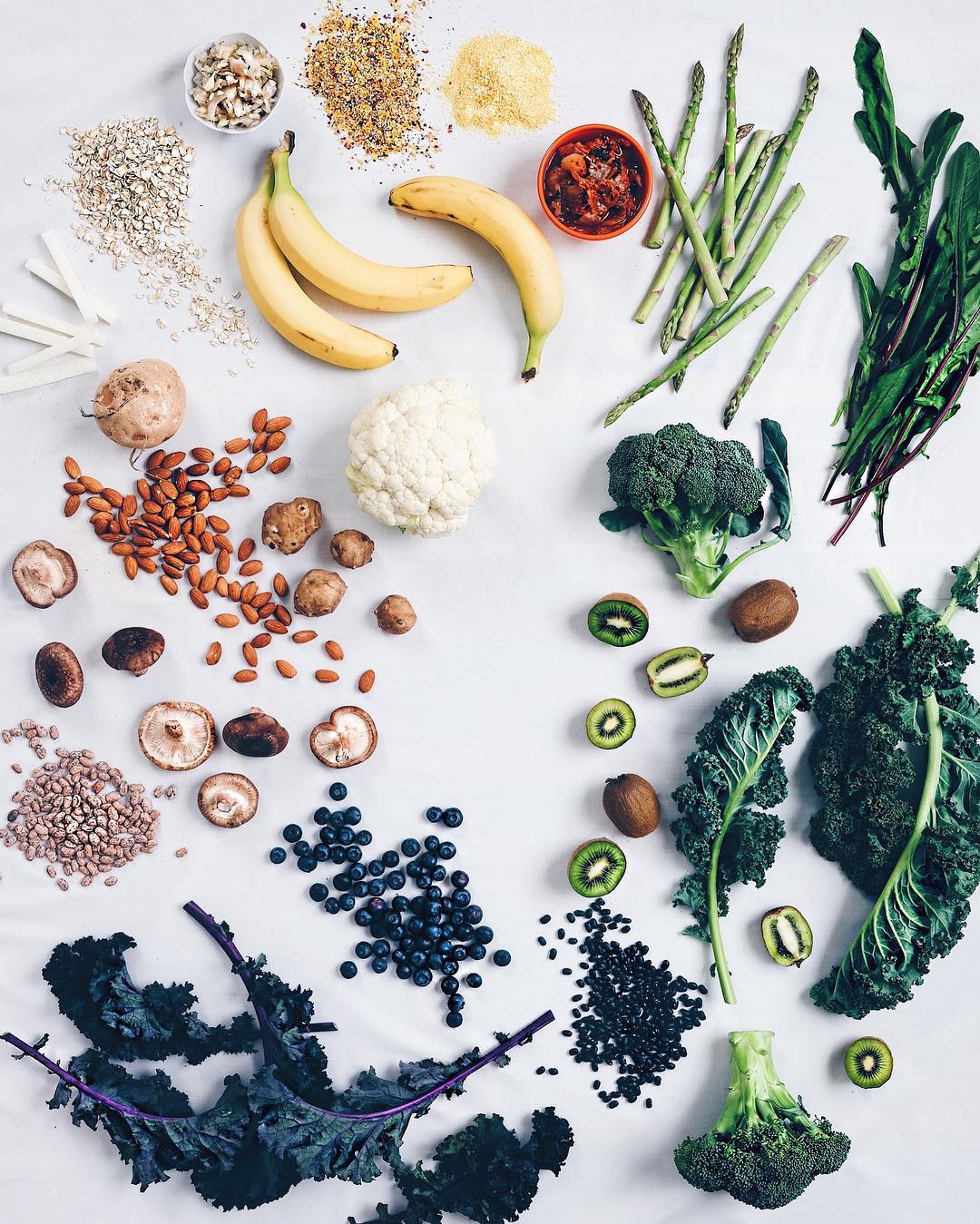One of the most revelatory advances in medical nutrition in the past decade has been around the importance and influence gut bacteria has on the function of our minds and bodies. Also known as the microbiota or microbiome, the thousands of bacteria that inhabit our bodies are busy pushing buttons and pulling levers everywhere at all times. From hormones to blood sugar, these tiny babies have a huge influence on everything from our energy level to our sex drive, our appetite to even our thoughts and beyond. That’s why it’s so important that we choose foods that promote a optimal gut health.
The great news is that these bacteria are highly adaptable with the ability to process the information dictated by the foods we eat from moment to moment. These beneficial bacteria thrive on colorful, plant-based foods.

Jerusalem artichokes
Benefits: High in inulin, strong prebiotic potential
Background: Inulin, an insoluble fiber, travels through our bodies from the small to large intestine, our colon. Once this insoluble fiber finds its way to the colon, it ferments into healthy micro flora. Other good sources of inulin include asparagus, leeks, onions and bananas. Note: It’s good to ease into eating Jerusalem artichokes, as they may cause distress to people with sensitive digestive tracts.
Bananas
Benefits: Restores health of the bacterial community, may reduce inflammation
Background: Like a peacemaker, bananas work to maintain harmony among microbes in the bacterial community, known as phyla. This is one reason bananas are a standard prescription for an upset stomach. Bananas may also reduce inflammation, due to high levels of potassium and magnesium.
Polenta
Benefits: This high-fiber, corn-based complex carbohydrate has a fermentable component
Background: Corn, the base of polenta, earns credit for fostering a healthy gut. Polenta’s insoluble fiber travels directly to the colon, where it ferments into multiple strands of gut flora. It’s good to note that polenta, like kombucha, varies in fermentable components.
Broccoli and other cruciferous vegetables (kale, cabbage, and cauliflower)
Benefits: Cruciferous vegetables contain sulfur-containing metabolites, known as glucosinolates, which are broken down by microbes to release substances that reduce inflammation and reduce the risk of bladder, breast, colon, liver, lung and stomach cancer.
Background: Like a game of Pac Man, glucosinolates latch onto carcinogenic intruders in our colon and kindly show these pathogens the way out. Over the long run, this pays big dividends: Studies show people who eat the most cruciferous vegetables reduce their risk of colorectal cancer by 18 percent. One more reason to load up on leafy greens!
Blueberries
Benefits: Can modify the microbiota to enhance immune function
Background: Our eyes are naturally drawn to anthocyanins, the pigment that gives blueberries a bold color, for good reason. We’re not sure if it’s the antioxidants, vitamin K compounds or fiber that gives blueberries clout as a superfood, but we’re impressed with the results. Studies continue to show blueberries may help strengthen our memory, improve our immune system, and diversify our gut bacteria.
Beans
Benefits: Any legume will help release short-chain fatty acids (SCFA) that strengthen your intestine cells, improve absorption of micronutrients and help with weight loss.
Background: Beans feed good gut bugs, which in turn revs up your immune system. Calorie for calorie, beans offer the most nutrition bang for your buck. They are packed with fiber, protein, folate and B vitamins, which play a role in regulating a healthy gut and a healthy brain.
Fermented plant-based foods: sauerkraut, kimchi and tempeh
Benefits: Fermented foods, such as beet radish kimchi or pickled ginger sauerkraut, are trending for a reason. They directly inoculate your gut with healthy live micro-organisms that will crowd out the unhealthy bacteria, improve the absorption of minerals and improve overall health.
Background: Fermented plant-based foods are probiotics that have been found to improve the health of the intestinal cells, improve immune function, decrease allergies, reduce the risk of colon cancer and treat diarrhea. You can make fermented foods at home and just as easily pick them up from a local grocery or health food store.
Special thanks to Shannon Sims for the post intro and to Meghan Jardine for the break down of these seven foods for gut health.
